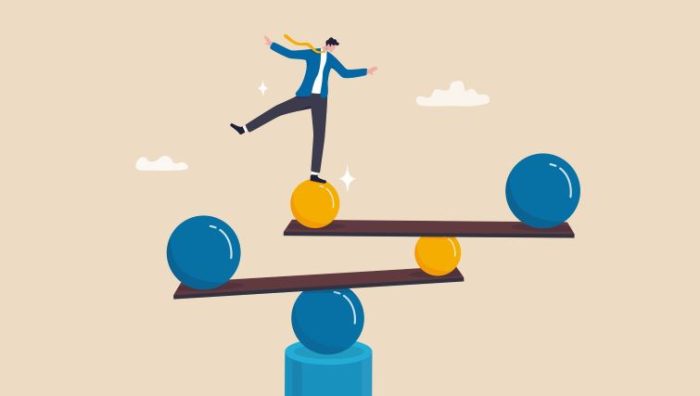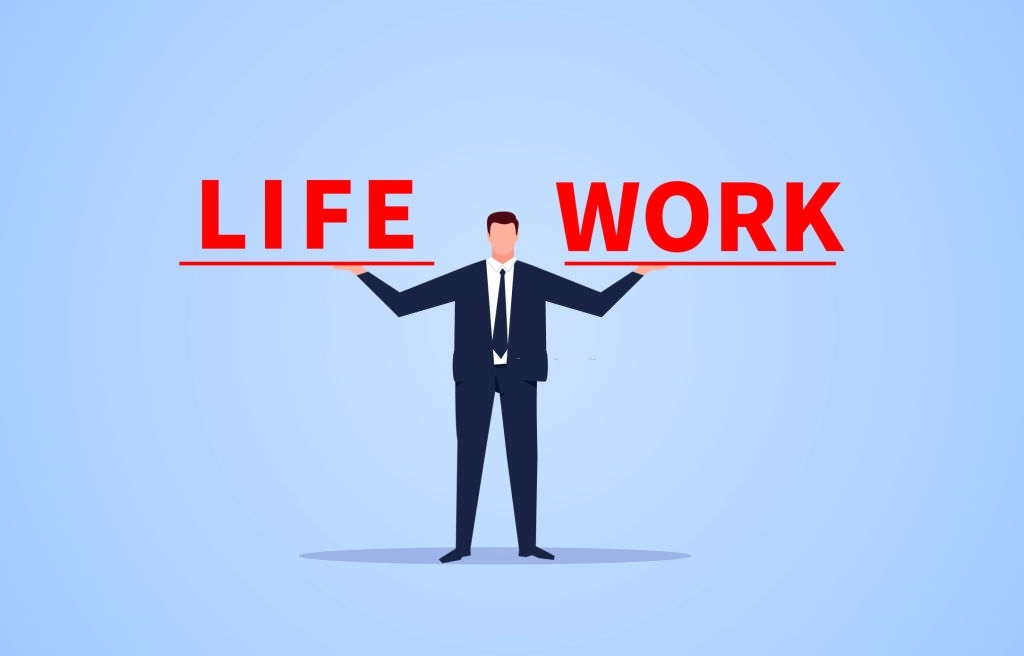In today’s fast-paced world, maintaining a healthy work-life balance can be a significant challenge. With technology constantly blurring the lines between work and personal life, it has become more difficult than ever to avoid burnout. In 2025, managing life balance will continue to be crucial to maintaining physical and mental health. Burnout, a state of emotional, physical, and mental exhaustion caused by excessive and prolonged stress, is something many people face in their careers and personal lives. The good news is that burnout is preventable with the right strategies.
This comprehensive guide will provide you with life balance tips for 2025 and beyond to ensure that you prioritize your well-being while still achieving your personal and professional goals. By incorporating these strategies into your daily routine, you can avoid burnout and lead a more fulfilling and balanced life.
Understanding Burnout and Its Impact

Before diving into solutions, it’s essential to understand burnout and why it is such a prevalent issue. Burnout is more than just feeling tired or stressed. It manifests as a prolonged period of emotional, mental, and physical exhaustion. People suffering from burnout often experience a sense of detachment from their work or personal life, a lack of motivation, and reduced productivity. It can affect your career, relationships, and overall health.
Some common signs of burnout include:
- Chronic fatigue or feeling drained all the time
- Decreased performance at work or in daily activities
- Lack of enthusiasm or passion for work or hobbies
- Feelings of irritability, anxiety, or depression
- Difficulty focusing or completing tasks
- Physical symptoms like headaches, stomach problems, or sleep disturbances
If left unchecked, burnout can lead to severe consequences, such as depression, anxiety, physical illness, and strained relationships. Therefore, it’s vital to adopt strategies that foster a healthy work-life balance and reduce the risk of burnout.
Life Balance Tips for 2025: Strategies to Prevent Burnout
1. Set Clear Boundaries
In the modern age, it’s easy to feel like you need to be constantly available—whether it’s answering work emails late at night, being on call during weekends, or being overly accessible on social media. However, setting clear boundaries between your work and personal life is essential for maintaining balance.
- Work Hours: Define your work hours and stick to them. If you work remotely, avoid checking work emails or doing tasks outside of your designated work hours.
- Technology Breaks: Take regular breaks from technology, especially from work-related apps and communication channels. Disconnect from emails, messages, and work notifications to give your mind a break.
- Personal Time: Guard your time fiercely. Whether it’s for exercise, family time, or simply relaxing, make sure you have space in your day that is not dedicated to work or obligations.
Setting boundaries helps reduce stress and gives you the freedom to focus on what’s important without feeling overwhelmed by constant demands.
Eco-Friendly Living: Sustainable Tips for 2025 You Can Start Today
2. Prioritize Self-Care
Self-care is crucial for avoiding burnout. Taking care of your mental, emotional, and physical well-being ensures that you have the energy and resources to cope with life’s demands. Here are some ways to prioritize self-care in 2025:
- Sleep Hygiene: Sleep is one of the most overlooked aspects of self-care. Poor sleep can exacerbate stress, reduce focus, and lower resilience. Make sure you get at least 7-9 hours of quality sleep per night.
- Exercise Regularly: Physical activity not only boosts your mood but also reduces stress. Aim for at least 30 minutes of exercise a day, whether it’s walking, yoga, or a full workout session.
- Mindfulness and Meditation: Incorporate mindfulness practices into your daily routine. Meditation, deep breathing, and mindfulness can help you stay grounded and focused, reducing stress and improving emotional well-being.
- Nutrition: A balanced diet full of whole foods can help regulate energy levels and combat fatigue. Avoid excessive caffeine, alcohol, or processed foods, which can negatively impact your energy and mood.
Making self-care a priority is not selfish; it’s an essential part of maintaining your health and preventing burnout.
3. Learn the Art of Saying No
Many people suffer from burnout because they take on too many commitments and struggle to say no. In 2025, it will be essential to learn how to set limits and say no when necessary. While it’s important to be helpful and supportive of others, overcommitting yourself can lead to stress and burnout.
- Assess Your Priorities: Before agreeing to a new task or project, assess your current workload and commitments. Ask yourself whether you truly have the time and energy to take on more.
- Be Polite But Firm: Saying no doesn’t need to be confrontational. You can politely decline by explaining that you’re currently too busy or that it’s not something you can commit to at the moment.
- Delegate Tasks: If possible, delegate tasks to others. Whether it’s at work or home, sharing the load can help prevent overwhelm.
Learning to say no can help you focus on what’s most important and avoid spreading yourself too thin.
4. Time Management is Key
Effective time management is an essential skill for achieving a work-life balance. With the demands of work, family, and personal life, managing your time effectively can help reduce stress and prevent burnout. Here’s how to improve your time management:
- Use a Planner or Digital Tools: A daily planner or task management app can help you organize your schedule, track deadlines, and prioritize tasks. Having a clear sense of what needs to be done can reduce feelings of anxiety and overwhelm.
- Time Blocking: Allocate specific blocks of time for particular tasks or activities. For example, designate morning hours for deep work, afternoons for meetings, and evenings for personal time or relaxation.
- Limit Distractions: Identify what distracts you during work or personal time (such as social media or emails) and minimize those distractions. Staying focused on the task at hand will help you accomplish more in less time.
- Break Tasks into Smaller Steps: Breaking down larger tasks into manageable chunks makes them feel less daunting and helps you maintain momentum.
By managing your time effectively, you can reduce the pressure of feeling like you’re constantly chasing deadlines or missing out on personal time.
5. Embrace Flexibility in Your Routine
While structure is essential, so is flexibility. Life doesn’t always go as planned, and being able to adjust when necessary can help you avoid burnout. In 2025, the world will continue to move at a fast pace, and adaptability will be a key factor in maintaining balance.
- Be Kind to Yourself: If things don’t go according to plan, don’t be hard on yourself. Flexibility means being okay with deviations and permitting yourself to adjust without guilt.
- Work-Life Integration: Instead of striving for a perfect work-life separation, try integrating work and personal life in a way that makes sense for you. For example, take advantage of moments during the workday to complete personal tasks, or vice versa.
- Embrace Change: Whether it’s a shift in your work schedule or an unexpected life event, being able to adapt and go with the flow is essential for avoiding stress.
Allowing room for flexibility helps you stay balanced and reduces frustration when things don’t go according to plan.
6. Cultivate Strong Social Connections
Social support is vital for mental health. Relationships with family, friends, and colleagues provide emotional support, help reduce stress, and offer a sense of belonging. In 2025, social connection will continue to be important in fostering life balance and avoiding burnout.
- Make Time for Loved Ones: Whether it’s family dinners, friend hangouts, or quality time with a partner, make sure you carve out time for meaningful social interactions. These connections provide emotional support and help you recharge.
- Join Communities or Groups: Finding a community of like-minded individuals can offer both support and a sense of purpose. Whether it’s a hobby group, professional network, or volunteer organization, being part of something greater than yourself can combat isolation and burnout.
- Seek Professional Support if Needed: If you’re struggling with stress or emotional burnout, consider seeking support from a therapist or counsellor. Mental health professionals can provide strategies and coping mechanisms to manage stress and prevent burnout.
Strong relationships provide both emotional and practical support, which can help you manage stress and maintain a sense of balance in your life.
Top Nutrition Tips for Staying Energized and Focused in 2025
7. Engage in Hobbies and Interests
Taking time for personal hobbies and activities that bring you joy is essential for maintaining a balanced life. Engaging in activities outside of work helps reduce stress and prevent burnout.
- Explore New Interests: Whether it’s learning a new language, taking up painting, or gardening, find something that excites and energizes you. Pursuing a hobby allows you to disconnect from stress and focus on something you love.
- Create a Routine for Hobbies: Just like work or exercise, make time for your hobbies. Whether it’s reading, hiking, or cooking, ensure that you set aside time regularly to nurture these interests.
Hobbies provide an outlet for creativity and relaxation, which are key to maintaining emotional and mental well-being.
Striving for Balance in 2025

Burnout is an ongoing challenge, but with the right strategies, it can be avoided. In 2025, focusing on boundaries, self-care, effective time management, flexibility, and social connections will be essential for maintaining a healthy life balance. By implementing these life balance tips, you’ll not only prevent burnout but also enhance your overall well-being, happiness, and productivity. Remember, balance is a continuous process—take it one step at a time, and make your well-being a priority.




